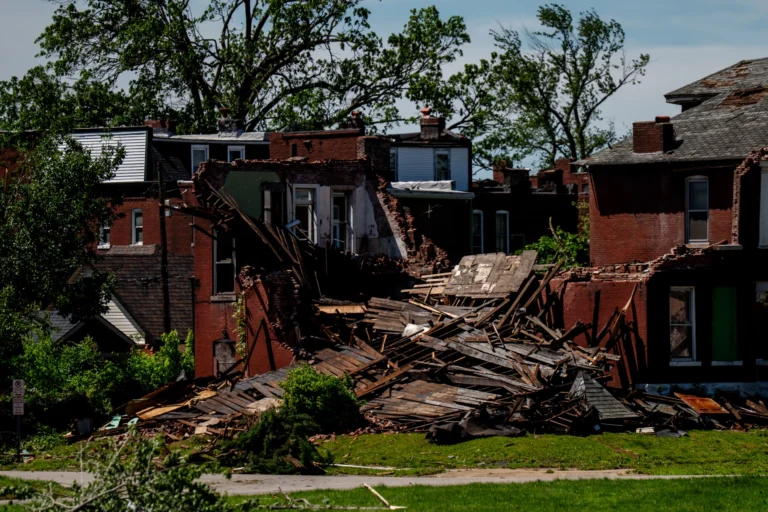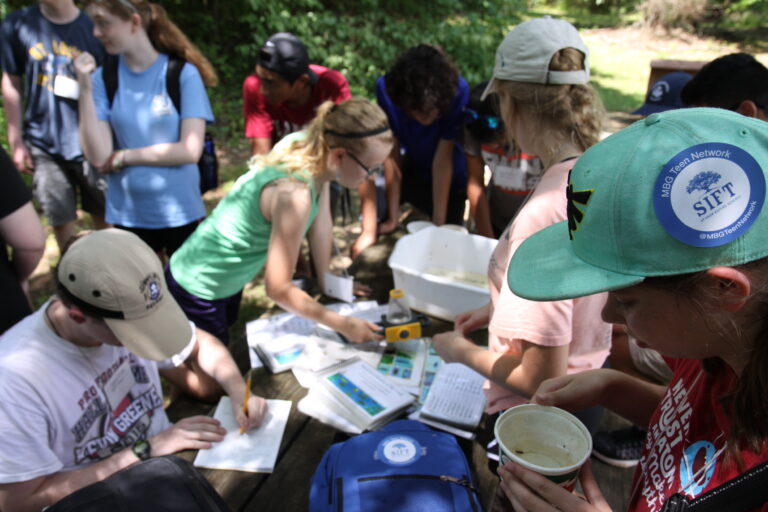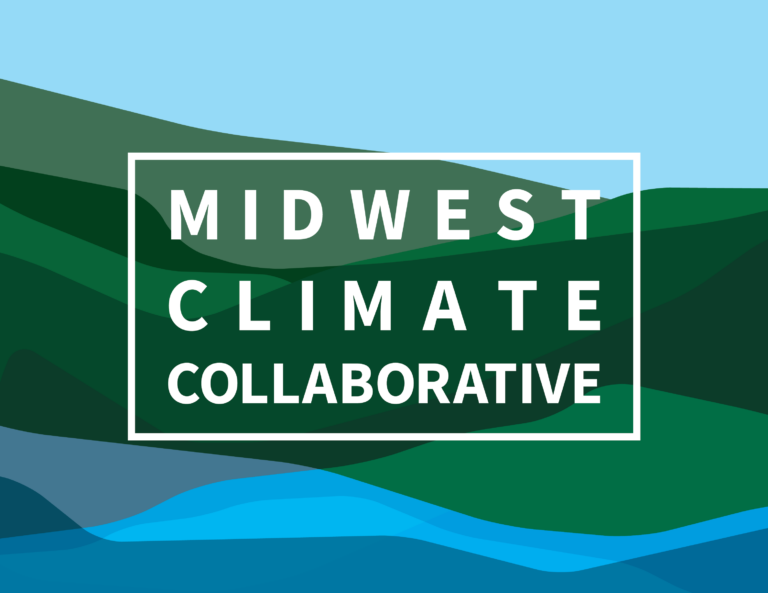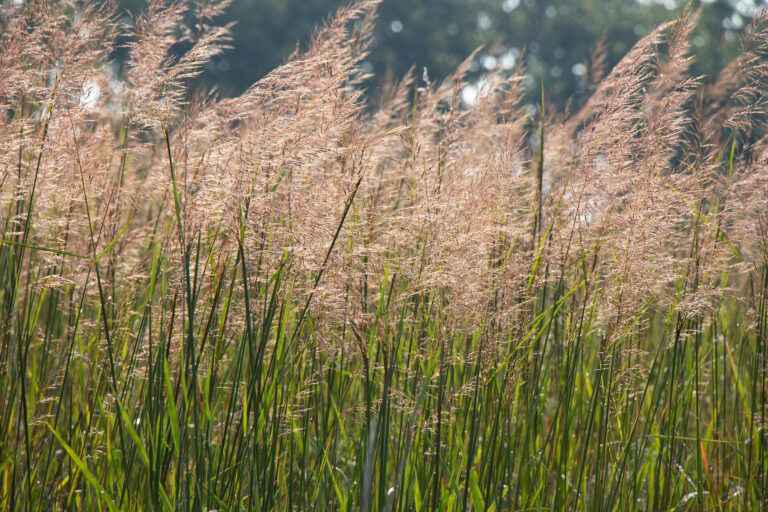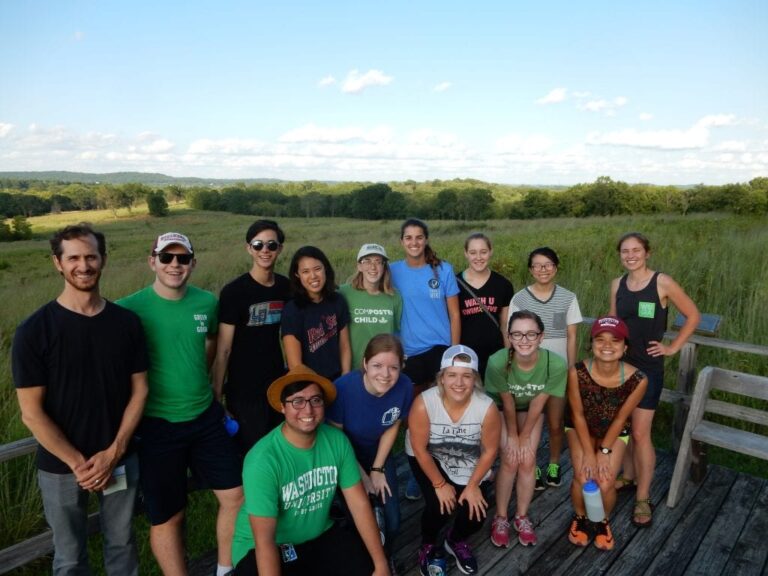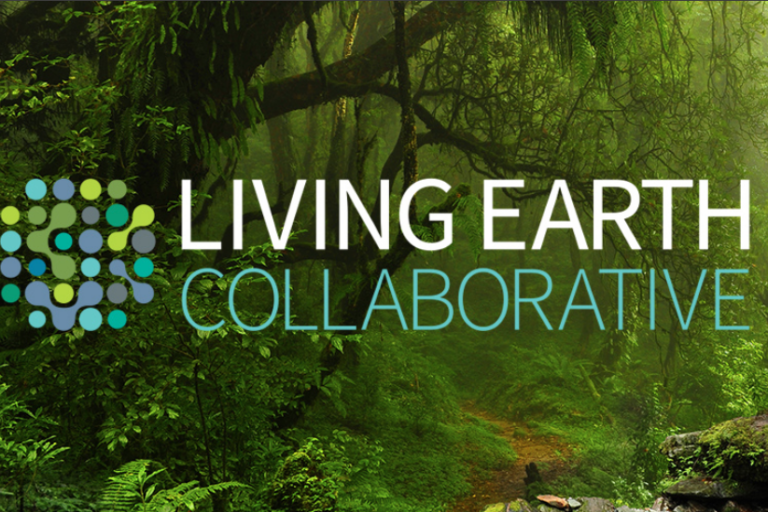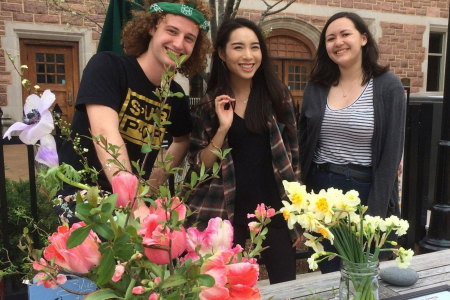WashU project to analyze environmental health of St. Louis neighborhoods impacted by tornado
In the months following the tornadoes that struck several St. Louis neighborhoods, Washington University researchers have been working alongside community partners to better understand the environmental health impacts facing residents. Through the Environmental Health Initiative, teams are conducting neighborhood walkthroughs, listening sessions, and field assessments to identify concerns such as mold, debris exposure, and air-quality […]
Resilient Cities
The Resilient Cities initiative from Sam Fox School engages the St. Louis community regarding complex issues of environmental and social resiliency. Current projects focus on the establishment of Peace Park in the College Hill neighborhood and engagement with the Great Rivers Greenway (GRG) Brickline Greenway Project.
Shaw Institute for Field Training (SIFT)
The Shaw Institute for Field Training (SIFT) program is an introductory training program designed to engage St. Louis 10th-12th graders in scientific exploration of the natural world, in collaboration with Shaw Nature Reserve. The program provides virtual and in-person training. Students are able paid and given transportation to these sites. Opportunities include species management, habitat restoration, and plant and animal inventories.
Midwest Climate Collaborative
The Midwest Climate Collaborative (MCC) is a cross-sector network with a vision of a carbon neutral, climate resilient, interconnected Midwest region. It amplifies climate successes, connects organizations across sectors and communities, and builds capacity for collective action on climate. The MCC does this by sharing knowledge, supporting climate research, and pursuing federal and private funds.
Interdisciplinary Environmental Clinic
The Interdisciplinary Environmental Clinic (IEC) at WashULaw handles environmental and community health cases. All cases are pro bono and are mostly concentrated to Missouri and Illinois with some being on the national level. Unlike many other clinics, the IEC work as an interdisciplinary team including students from law, engineering, arts and sciences, public health, medicine, business, and architecture.
Alliance for Native Programs and Initiatives (ANPI)
This collaborative effort between the Brown School’s Buder Center with leaders at the St. Louis Zoo, St. Louis Art Museum, Missouri Humanities Council, Missouri History Museum and Lutheran Indian Ministries, is meant to advance Native partnerships and programming. Strengthening collaboration and communication will allow better dissemination of knowledge, stronger programs, and improved outreach.
Environmental Studies Impact Internship
The environmental studies impact internship offers WashU students the opportunity to work with St. Louis organizations to positively improve and impact the quality of life through an environmental justice lens.
Living Earth Collaborative
In early 2018, the Living Earth Collaborative: Center for Biodiversity was launched. WashU partners with the Missouri Botanical Garden and the Saint Louis Zoo to advance the center’s mission. The mission includes advancing the knowledge of biodiversity and ensuring the future of the diverse species of earth. Students within the center can participate in research courses and internships that further accelerate the biodiversity work and the relation with these St. Louis areas.
The Sustainability Exchange Course
The Sustainability Exchange Course at WashU provides students and faculty with the opportunity to make an impact on sustainability projects in the St. Louis area. Project teams, which are made of a St. Louis client, a faculty advisor, and a group of students, all work toward a common goal. Since its creation in 2015, there have been 76 projects with over 350 students.
